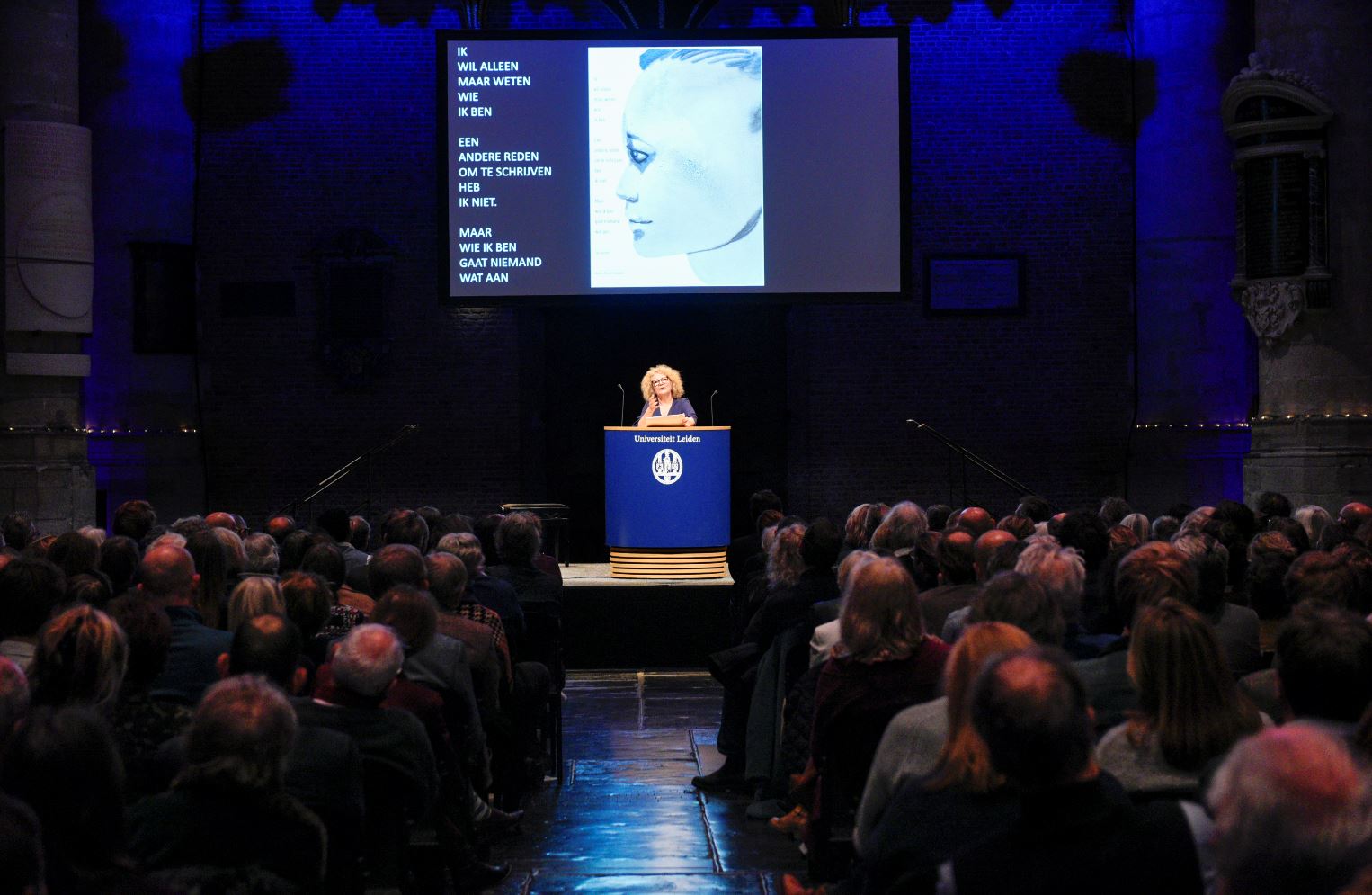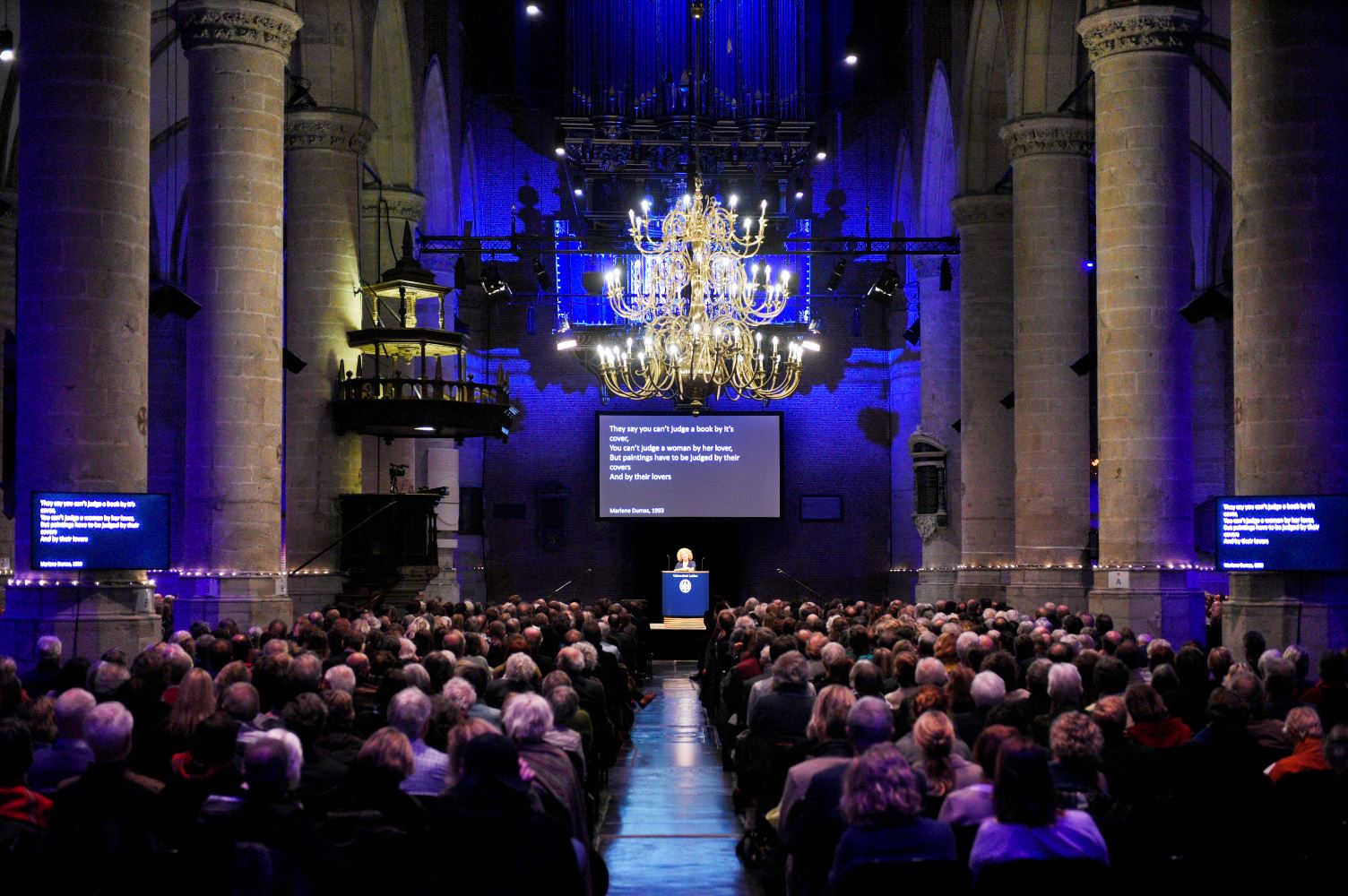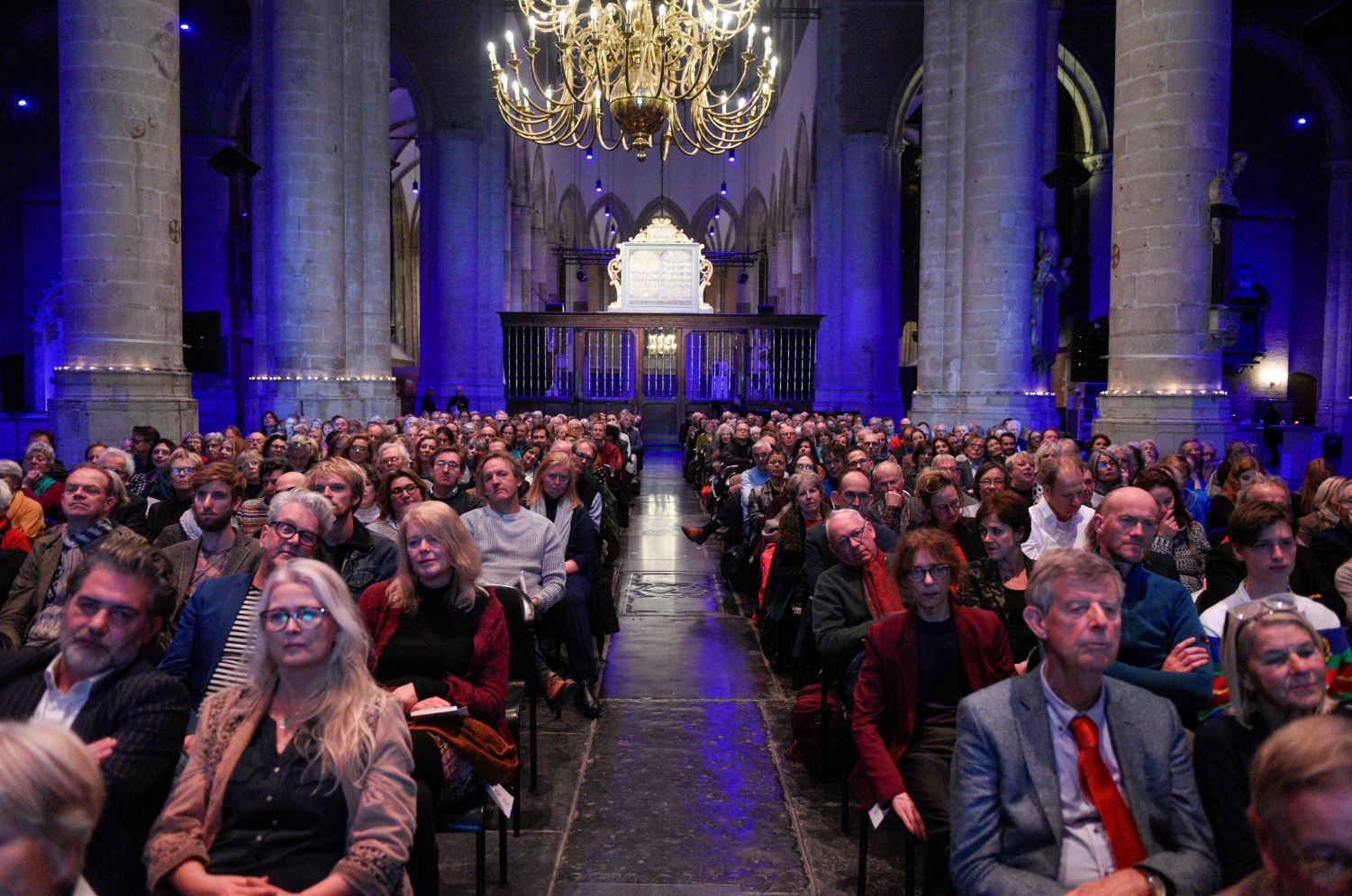
‘Everyone wants to discover the person behind the artist’
Artist Marlene Dumas gave the 48th Huizinga Lecture to a packed Pieterskerk on 6 December. She spoke about her own background, and why you can’t assume this will help you understand her work.
Marlene Dumas, who was born in South Africa and lives in Amsterdam, is considered one of the leading artists of today. She has made a name for herself with her often erotically charged paintings and watercolours in her signature colours of grey, blue and red.
Apartheid
One topic she covered in her lecture, which was interspersed with images and video clips, was her own background. She grew up during apartheid, ‘The governing National Party [...] wanted my “white” civilisation to be protected, with an unchanging identity and fixed culture. That’s why I mistrust and dislike both terms.’
Culture and art are two completely different things, Dumas went on to say. Whereas culture primarily tries to preserve the rules, art is about changing them. She quoted American literary critic Lionel Trilling when he said that the aim of art is to free individuals from the tyranny of their culture.
The ‘Irresponsible Gesture’
In reference to the title of her lecture, Dumas remembered her schoolteacher using corporal punishment on her because she had not stuck to the instructions in her drawing lessons. ‘This carelessness was wrong. What I had made were “irresponsible gestures.” Could that be the true reason why I produce art? That I can decide on my own gestures.’
The problem is that people are all too quick to assume what an artist stands for, said Dumas. They then look only fleetingly at artworks and fail to read books properly. ‘People stand in front of paintings, with headsets on, and listen to rather than look at the painting. Looking properly while simultaneously listening is difficult if not impossible.’
Positive reactions
Murmurs of agreement and regular laughter sounded from the room in this clearly stimulating lecture. One member of the audience said afterwards: ‘It was like a Zomergasten [Dutch TV programme] evening: we were treated to beautiful clips and images, and there was always a lovely or interesting thought behind this.’
The Huizinga Lecture given by Marlene Dumas has been published as a book by Elsevier Weekblad. It is available in bookshops or can be ordered from the Elsevier Weekblad website.
Photos: Peter Hilz
Mail the editors
About the Huizinga Lecture
The Huizinga Lecture [in Dutch] is an annual lecture in memory of historian and cultural philosopher Johan Huizinga (1872-1945). The Faculty of Humanities (since 2014 in conjunction with Elsevier Weekblad) has been organising it since 1972. The lecture always has a cultural-historical or cultural-philosophical theme.




